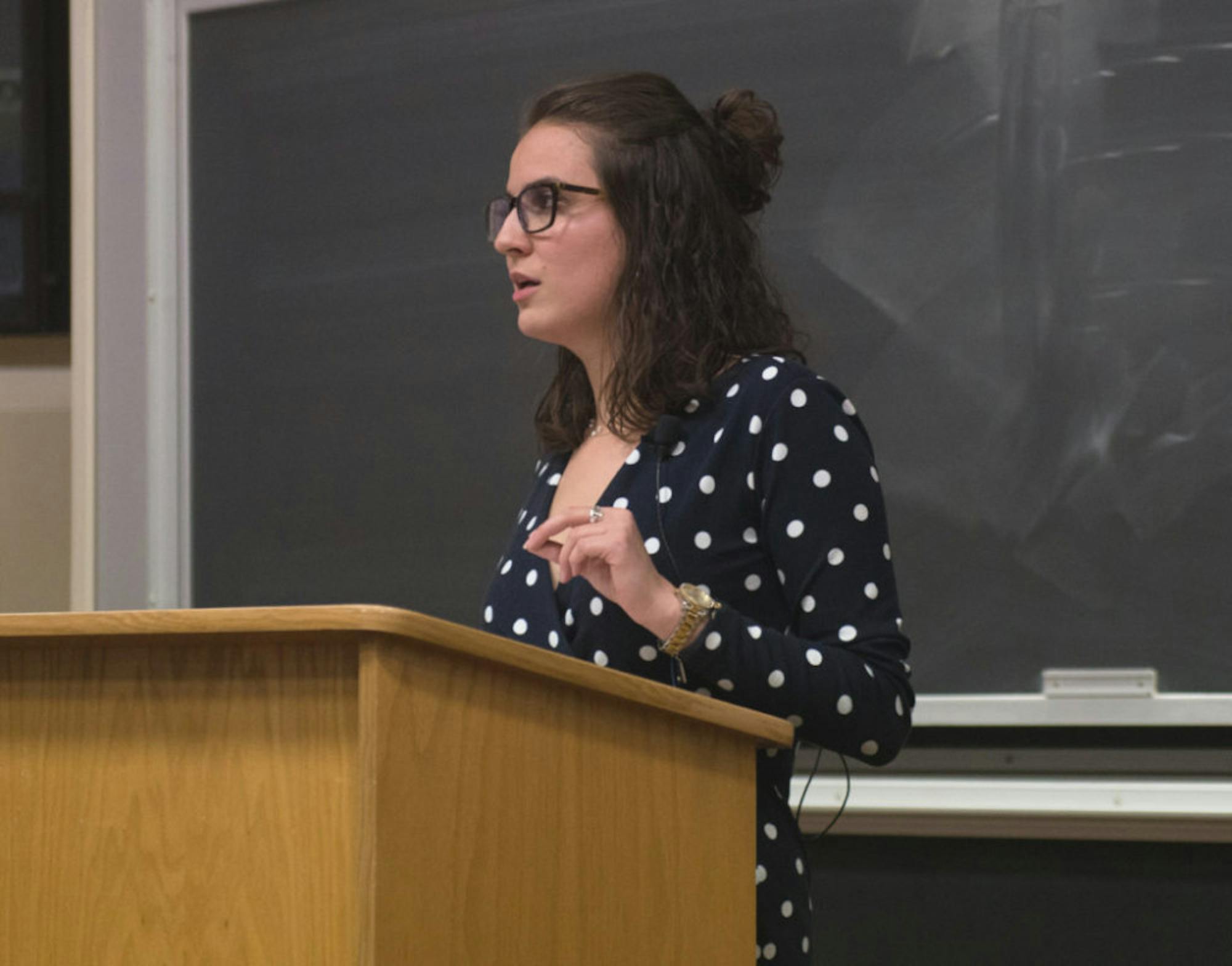A crowd consisting of students, parents, grandparents and even a few children gathered in DeBartolo Hall on Thursday to listen to Alexandra DeSanctis’ lecture titled “Surrender is not an option — Reclaiming the abortion debate.”
Notre Dame’s Right to Life Club invited the 2016 University alumna to speak. DeSanctis writes about and speaks out about her passion: the right to life.
“I enjoy it a lot, but it’s difficult work, and it’s disheartening work a lot of the time in many ways,” she said. “As I’m sure you all know, I’m staring at a lot of evil. We all stare at a lot of evil when we think about this issue, and it takes a toll. But at the same time, I’m actually incredibly hopeful for the future of the pro-life movement … I’m convinced, absolutely convinced that this is a fight we can win.”
DeSanctis highlighted the points she believes could make a difference in the abortion argument. One major point she made was the importance of defining abortion — both scientifically and factually — in order to reset the terms of this debate.
“It’s very simple — we all know this. An embryo from the moment of conception meets the scientific criteria to be considered a life,” DeSanctis said. “It has human DNA, so it’s a human … Its DNA is entirely distinct from both its mother and its father. It is inside the mother but not part of the mother. This right here is why the reality that abortion is the right that dare not speak its name matters so much.”
DeSanctis said these facts are never recognized because the opposition knows the result of this information will expose abortion for what it truly is.
“If they acknowledge a fetus as a human being, suddenly they are in an ethical minefield,” she said. “Suddenly they have to explain why it is okay to end a human life.”
She discussed how, as a pro-life supporter, one must begin to call abortion what it truly is.
“That’s the real foundation of my remarks tonight … because I believe we all know — whether in our minds or deep, deep in our hearts — that abortion is the taking of a human life,” DeSanctis said. “Abortion thrives in the dark, in euphemism.”
Once abortion is exposed for what it truly is, DeSanctis said, it does not look as enticing to its supporters.
“Dispensing of a human life does not look like exercising your rights or obtaining health care,” she said. “It doesn’t look like freedom, and I doubt it feels like freedom, but these are the things we hear about when we try to talk about abortion.”
DeSanctis concluded her talk by stating that no one likes the reality of abortion, leading individuals and large groups to stand up for what they believe in. She said this belief inspires passionate pro-life supporters, including the Notre Dame community, to make trips every single year to Washington, D.C., for the March for Life to say abortion needs to end.
“That’s the hard work of the pro-life movement,” DeSanctis said. “What each of us chooses to do each day, whether we care for expectant mothers in need, whether we have those tough conversations even when we’d rather not. By never being afraid to say what abortion is, we have the power to show women that the life inside of them is a human being, that it’s distinct, that it matters, that it’s valuable and that they are valuable.”
Pro-life activist speaks on abortion debate
Alexandra DeSanctis speaks at her lecture titled “Surrender is not an option — Reclaiming the abortion debate” on Thursday night.









